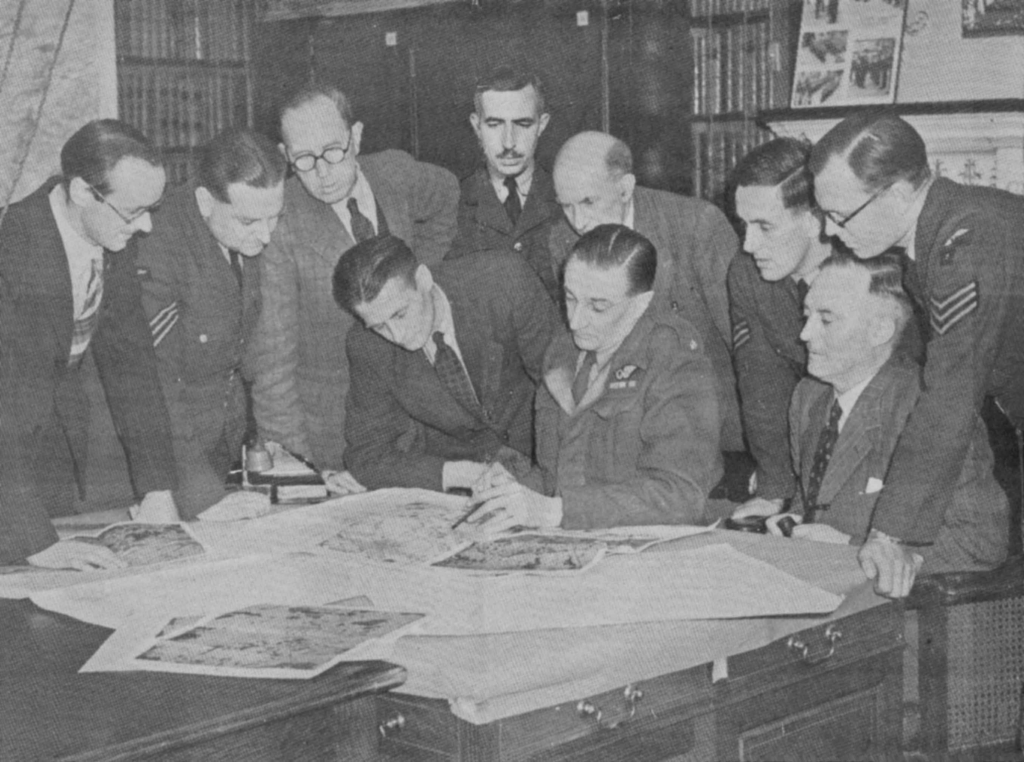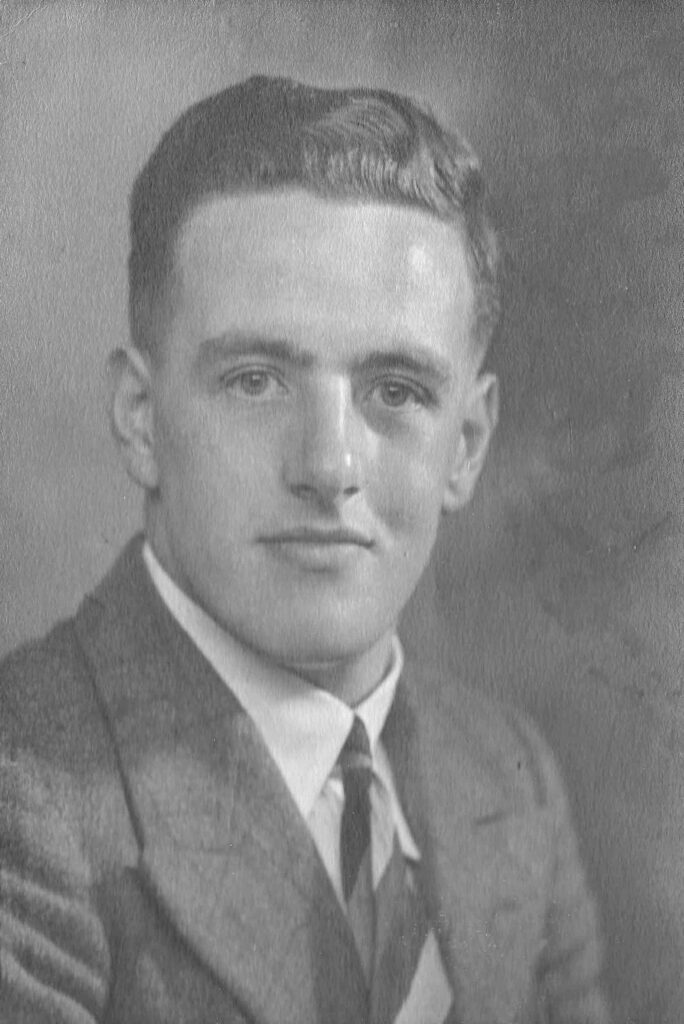Secret Hillside
Background
In the Second World War Hughenden Manor was home to a secret map-making operation. The Manor was requisitioned by the Air Ministry in 1941 and given the codename ‘Hillside’. Its role was to provide specialised, hand-drawn, accurate maps from reconnaissance photographs. These were used in night-bombing raids by Bomber Command to aid identification of the targets and increase the accuracy. Further information on the activities at ‘Hillside’ can be found in the display in the West Wing of the Manor.
Around 100 men and women were based at ‘Hillside’, both RAF and civilian personnel. Many were billeted in High Wycombe and nearby villages, such as Downley. Among those was Sgt Allan Gosling, father of Margaret Motch who has provided the following memories of her father and her time living in Downley.
By Margaret Motch
Allan Heslop Gosling was born in 1910 in Greater Manchester. At a young age he joined the RAF as a photographer and had a very nice posting to Singapore, well before the Second World War. On his return in 1936 he was posted to RAF Uxbridge and he then married my mother Winifred who also came from the Manchester area. I was born in Uxbridge in 1940, and in 1941 Allan was posted to Hughenden Manor, which had been taken over by Bomber Command. The photos which had been taken by the bomber crews were developed and printed at Hughenden and then sent over to Medmenham to be poured over by the boffins. Dad walked through the woods every day to Hughenden Manor.


We were initially billeted with a witch of a lady in Coningsby Road (she would not let my mother have any hot water for washing my nappies). Mum was very miserable at first living in Downley as the locals did not take too kindly to interlopers. Luckily we then went to live with another RAF family in cottages in Littleworth Road, (I believe the cottages are still there next to Downley Garage). In 1944 my parents went to see a cottage (2 Phillips Row, Commonside) where an old lady had died and on their way back over the Common the Air Raid Siren sounded, so they dived into a rabbit hole, or some such. I, as I had been taught by my parents, hid under the table but Mrs Youens, who was not used to bombings, went to the window. Unfortunately she was cut with the flying glass which had been caused by the blast from the Doodle Bug that had gone off ‘UP CALI’ (California Holdings). So that night we had to sleep on blankets at 2 Phillips Row. The Youens family went to relatives. In 1945 my brother Tony was born so we had to move again and this time we were billeted with the Youens family over the Common. It was great fun living with the Youens family, playing with Jenny and running through the woods to meet my Dad.
2 Phillips Row had a toilet down the bottom of the garden, which was emptied a few times a year by a tanker that we called Dirty Dennis. No taps in the kitchen only a pump and a black lead cooker. I remember other Air Raid Sirens and running home along Commonside with my dolls pram. Just shows there must not have been any traffic to be allowed out to play on the road. My brother Rodney was born there in 1945 and of course the war then ended and my dad was demobbed. He had to travel in a coach which was laid on all the way to Kingston Upon Thames to what was still called the War Office. Later when the coach was stopped he rode to work every day on a motor cycle. He enjoyed the whist drives in the village hall whilst we were all having our tin-bath wash in front of the fire. The local lads were always stealing our front gate and we would find it in the dells. Dad soon got involved in village life and he was a school governor and a member of the British Legion and also a Parish Counsellor. As he was a photographer he took many photos of events in the village including VJ Day, Plomer Green Avenue Coronation Day, fetes and parades.
In 1949 when Mum was in the Radcliffe having my sister Joan, Dad took the keys of 37 Plomer Green Ave to her. She was none too pleased as she had seen the shoddy workmanship whilst they were being built. And so it proved to be. The smoke poured back down the living room chimney (the bricks had been put in badly) and the condensation poured down from the ceiling and walls in the ‘so called‘ kitchen when any cooking or washing was carried out.
In 1960 my parents managed to buy No 15 the Pastures. Dad was still travelling a distance to work, and by this time he was still doing the same job but at Feltham, Middx. Probably all this travelling and the numerous village activities took their toll on him and he died of heart failure in the summer of 1966 at the age of 57. I remember some members of the British Legion coming to see Mum and saying “Not sure how we will get to the funeral, if Gossy was here, he would take us”. But of course Allan Gosling was dead.
